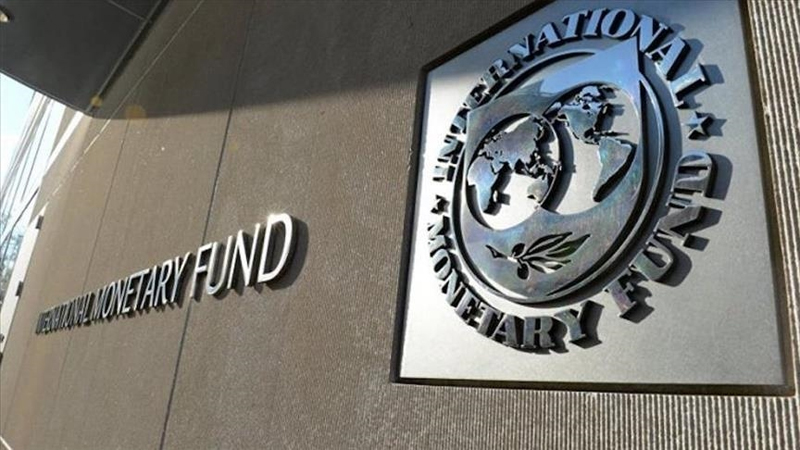The IMF Executive Board convened on June 12 and approved the second review of Sri Lanka’s loan program, paving the way for the disbursement of USD 336 million as the third instalment of the bail-out program. The IMF noted that Sri Lanka has successfully met all quantitative targets set under the program, with only a minor shortfall noted in the Social Expenditure Indicator target. IMF Deputy Managing Director Kenji Okamura has pointed out that the economy has started to recover, supported by low inflation rates and improved revenue collection.
However, Okamura has also highlighted that the Sri Lankan economy remains in a risky situation due to delays in achieving debt sustainability. He emphasised the urgent need to expedite debt restructuring, safeguard social and capital expenditures, enhance public financial management for better financial discipline, and strengthen the debt management framework.
Following are opinions expressed by politicians and academics regarding the potential progress Sri Lanka could achieve with the issuance of the third IMF tranche.
****
No country will alter IMF conditions due to changes in Governments
SLPP Member of Parliament, Madhura Withanage, AAL
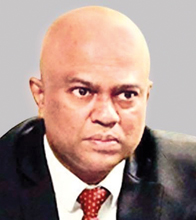 Some were not optimistic about receiving this third instalment. In recent days, certain political parties have made various statements, accusing us of attempting to sell the country. We should celebrate achieving this third instalment for our program. If they criticise our initiatives, the SJB and the NPP should clearly present which documents they plan to implement in the future.
Some were not optimistic about receiving this third instalment. In recent days, certain political parties have made various statements, accusing us of attempting to sell the country. We should celebrate achieving this third instalment for our program. If they criticise our initiatives, the SJB and the NPP should clearly present which documents they plan to implement in the future.
Those parties are merely spreading falsehoods. They claim they will alter IMF terms when they assume power. We’d like to know if there are any countries worldwide that have modified IMF conditions due to a change in government.
After May 9, 2022, a significant crisis unfolded in our country, exposing deep-seated issues. During this challenging period, President Ranil Wickramasinghe stepped forward to contribute to the nation’s rebuilding efforts. The country faced a crisis stemming from the Covid-19 pandemic and economic challenges. Despite opposition attempts to sow misinformation, the people steadfastly supported the government with unwavering faith. Their sacrifices have been instrumental in steering the country through these turbulent times.
Especially those working abroad, business owners, and individuals from all walks of life, from labourers to professionals, who made significant sacrifices. The government imposed taxes on their earnings. Moreover, international organisations like the IMF, World Bank, Asian Development Bank, and other global institutions have expressed confidence in our government. They have also extended considerable support to alleviate these burdens. Despite this, a faction within the opposition remains disgruntled and is spreading misinformation to undermine these achievements.
****
IMF pleased with decisions taken by Government
University of Kelaniya Department of Economics Prof. Navaratne Banda
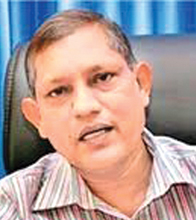 The government has raised income levels, as noted by the IMF, leading to the receipt of the third instalment by fulfilling IMF conditions. However, certain conditions have posed challenges for the people of the country. The government must address these concerns. Reserves have now increased, and both government and tax revenues have seen growth. While the IMF expresses satisfaction with the government’s actions, some measures have left the public, government, and private sector employees dissatisfied.
The government has raised income levels, as noted by the IMF, leading to the receipt of the third instalment by fulfilling IMF conditions. However, certain conditions have posed challenges for the people of the country. The government must address these concerns. Reserves have now increased, and both government and tax revenues have seen growth. While the IMF expresses satisfaction with the government’s actions, some measures have left the public, government, and private sector employees dissatisfied.
Receiving the third instalment is positive news. Transparency regarding the usage of funds is essential. Often, government funds are allocated towards debt repayment. However, if investments are made wisely for the country’s development and yield tangible results, it would be a cause for satisfaction. Otherwise, achieving meaningful outcomes would remain elusive.
The continuous rise in taxes and the increasing prices of goods are placing people in challenging circumstances. There has been no relief for the people, who struggle to manage expenses when the money they receive is immediately burdened by taxes.
****
Negotiating with the IMF is the best way to reduce corruption
United National Party Executive Committee Member Dr. Lasantha Gunawardena
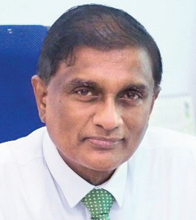 The IMF disburses these instalments only after assessing whether the country’s economic management is being conducted effectively. They provide guidance on strategies to strengthen the nation. Additionally, we all must make sacrifices to steer the economy back on track.
The IMF disburses these instalments only after assessing whether the country’s economic management is being conducted effectively. They provide guidance on strategies to strengthen the nation. Additionally, we all must make sacrifices to steer the economy back on track.
We have witnessed the consequences in the past when the government curtailed the collection of certain import duties. Insufficient efforts were made to cultivate an export-driven economy.
A specific political party advised foreign workers not to remit money to Sri Lanka due to their political stance. Consequently, some foreign workers began using alternative methods to send money. To transform the country’s economy, shift towards an export-oriented model, and combat corruption and fraud effectively, negotiating with the IMF is deemed the optimal approach.
The government is actively implementing a program aimed at stabilising the country’s economy. Key legislations such as the Assets Act, the Anti-Corruption Act, and the Economic Transformation Act are pivotal in this effort, guided by expert advice. President Ranil Wickremesinghe opposes measures that he believes will burden the people and is committed to their welfare. He consistently strives to bring stability to the country by pursuing the best available solutions.
****
IMF is satisfied with the Government’s adherence to the agreement
University of Sri Jayewardenepura Department of Economics Prof. Shirantha Heenkenda
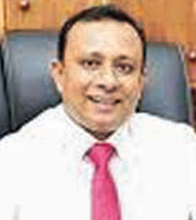 As a nation, we should be pleased with the announcement of Sri Lanka receiving the third tranche from the IMF. This achievement signifies more than just financial support; it reflects our commitment to fulfilling our obligations with the IMF. However, we acknowledge that this announcement comes shortly after addressing several issues following the second instalment.
As a nation, we should be pleased with the announcement of Sri Lanka receiving the third tranche from the IMF. This achievement signifies more than just financial support; it reflects our commitment to fulfilling our obligations with the IMF. However, we acknowledge that this announcement comes shortly after addressing several issues following the second instalment.
However, this time the loan instalment was released as anticipated. The Central Bank of Sri Lanka and other stakeholders worked diligently to achieve this milestone. Various international conferences and engagements played a crucial role in securing this support, paving the way for collaboration with institutions such as the Paris Club, World Bank, and Asian Development Bank.
The people of the country, including public and private sector employees, as well as the general public, bore the burden of taxes and other living expenses to achieve this. Therefore, this achievement is a testament to the patience and perseverance of the people. It has also earned the trust of international financial institutions and the global community. This confidence enables us to take further steps, particularly in maintaining financial discipline.
Therefore, as a country, we were able to progress despite challenges by implementing various arrangements and regulations. The receipt of this tranche was smooth, showcasing our proven financial discipline. This demonstrates that decisions were made responsibly, ensuring continued trust in us. Sri Lanka receiving the third IMF tranche is viewed as a testament to our credibility in the international community.
****
One must not think IMF is the cure for all ailments
NPP Executive Council member Dr. Nalinda Jayatissa
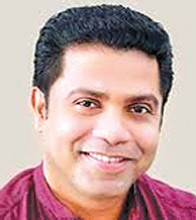 In fact, the NPP has maintained a consistent stance from the outset regarding the government’s engagement with the IMF. Currently, the IMF is pivotal in addressing the imperative of debt restructuring. However, resolving these loans cannot rely solely on instalment payments. The situation compels us to consider the IMF’s role as more than just a temporary measure. It’s essential to recognize that the IMF is not a cure-all solution for these challenges.
In fact, the NPP has maintained a consistent stance from the outset regarding the government’s engagement with the IMF. Currently, the IMF is pivotal in addressing the imperative of debt restructuring. However, resolving these loans cannot rely solely on instalment payments. The situation compels us to consider the IMF’s role as more than just a temporary measure. It’s essential to recognize that the IMF is not a cure-all solution for these challenges.
We must develop our own economic program while seeking relief from the IMF for international bonds and bilateral debt. However, the government seems more focused on securing IMF instalments than on enhancing the country’s production.
Moreover, there appears to be a lack of a coherent national plan. There are doubts about the IMF’s effectiveness, especially since it has disbursed this instalment in the context of economic stability, which we failed to achieve 17 times before.
In that case, it is imperative to pursue a robust economic program alongside the current IMF agreement. If this effort falters and necessitates another round of debt restructuring, the burden will heavily impact the populace. Presently, the strain is evident.
It’s understood that failure in this endeavour would likely lead to foreign creditors withholding loan disbursements. Therefore, a sustainable and effective economic strategy is crucial to mitigate these risks.
The tax burden, particularly on professionals, has intensified, coupled with job losses. The populace is grappling with these significant challenges, anxiously awaiting a comprehensive restructuring of foreign debt. Although there has been a temporary decrease in the dollar, the relief is temporary. What is crucial now is a sustainable and thorough restructuring of the debt in collaboration with the IMF, which holds greater significance than merely obtaining loan tranches.
****
Trust of international financial institutions increasing
Peradeniya University Faculty of Management Prof. Milton Rajaratne
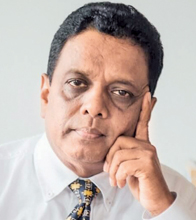 This tranche can be likened to a guarantee provided to borrowers upon their accession to the IMF. Creditors have re-evaluated this instalment as part of a new program set for the upcoming years. It serves as a form of assistance for debt restructuring.
This tranche can be likened to a guarantee provided to borrowers upon their accession to the IMF. Creditors have re-evaluated this instalment as part of a new program set for the upcoming years. It serves as a form of assistance for debt restructuring.
Simultaneously, our country has acknowledged its financial insolvency. The possibility of resolving this lies in accordance with the new agreements made.
We should aim to declare our country non-bankrupt. The crisis we faced brought us close to bankruptcy, and resolving this status is crucial for our national functioning. This achievement will signify that we have overcome bankruptcy and can operate as a stable nation. It also enhances our credibility with international financial institutions, signalling our capability to manage economic challenges effectively.
****
Due to IMF agreement, the tax burden on the people has increased
SJB Secretary General Member of Parliament Ranjith Maddumabandara
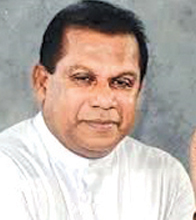 The IMF and the World Bank have acknowledged that corruption and fraud remain pervasive in the country. There is a pressing need for transparency in how this money will be invested. Despite ongoing crises, the government has been implicated in significant frauds. In light of these issues, simply securing IMF premiums without addressing corruption is futile. It is imperative to prioritise integrity, eliminate fraud and corruption, and ensure investments benefit the country’s development.
The IMF and the World Bank have acknowledged that corruption and fraud remain pervasive in the country. There is a pressing need for transparency in how this money will be invested. Despite ongoing crises, the government has been implicated in significant frauds. In light of these issues, simply securing IMF premiums without addressing corruption is futile. It is imperative to prioritise integrity, eliminate fraud and corruption, and ensure investments benefit the country’s development.
We must prioritise debt repayment and accelerate the debt restructuring process. The government should refrain from distributing resources for vote campaigns if it deems it detrimental to the country’s welfare. Many people are currently struggling to make ends meet, unable to afford basic necessities like books for their children or medicine. It is crucial to alleviate these difficulties and ensure resources are used wisely for the benefit of all citizens.
Therefore, this is a critical moment for providing relief to the people. We urge the government to invest this money wisely and responsibly. If the country continues to face challenging conditions, we pledge to alleviate these hardships when we assume power.
Additionally, we are committed to addressing the increased tax burden and the suffering of the people resulting from the IMF agreement. We aim to work towards easing these burdens and improving the livelihoods of our citizens.
This money has been obtained through taxes imposed on the general population. Despite the government’s assertions that the country has returned to normalcy, the people continue to endure significant hardships. We are taking necessary steps to ensure that these measures do not unduly burden the populace.
****
Sri Lanka has achieved several economic goals
University of Colombo Department of Economics Prof. Priyanga Dunusinghe
 Sri Lanka has successfully achieved many of its goals set for December 2023 and April 2024. Notably, most targets were met by December 2023, except for those specifically related to social spending, which were accomplished by April 2024 or shortly thereafter.
Sri Lanka has successfully achieved many of its goals set for December 2023 and April 2024. Notably, most targets were met by December 2023, except for those specifically related to social spending, which were accomplished by April 2024 or shortly thereafter.
Sri Lanka is diligently implementing the agreed-upon economic reforms to the satisfaction of the IMF. Nevertheless, the lingering issue of incomplete debt restructuring to achieve debt sustainability highlights the country’s current economic risks. These challenges are compounded by various global economic conditions affecting economies worldwide.
The risk of economic shocks from the global economy, environmental factors, or climate events looms large. Any such shock could potentially plunge the country back into an economic crisis. Additionally, Sri Lanka has not yet successfully completed the debt restructuring necessary to achieve debt sustainability, which continues to hinder its ability to access foreign credit sources.
We are currently unable to secure the required credit facilities from multilateral, bilateral sources, or the international financial market. This precarious situation leaves us on the brink of bankruptcy. If an external shock were to occur under these conditions, there is a significant risk of the economy being jeopardised once more.
Following the economic crisis, Sri Lanka has encountered several shocks. Despite building up reserves to some extent, completing the debt restructuring process remains crucial to achieve debt sustainability. This step is essential to mitigate risks in such situations.
Several measures have been implemented to pass the IMF assessment. However, the concern remains that even if the IMF approves these measures, there is a higher likelihood of failure in the medium to long term. Simply issuing gazettes, enacting laws, and passing bills in parliament solely to meet short-term IMF requirements may not constitute successful action in the broader economic context.
The Anti-Corruption Act was introduced, but to date, no corresponding institution has been established. Despite implementing decrees related to IMF conditions and initiating so-called reforms, there is a lack of actual operational programs to enforce them. This necessitates deeper scrutiny by policymakers, as delayed implementation often leads to adverse outcomes over time.







